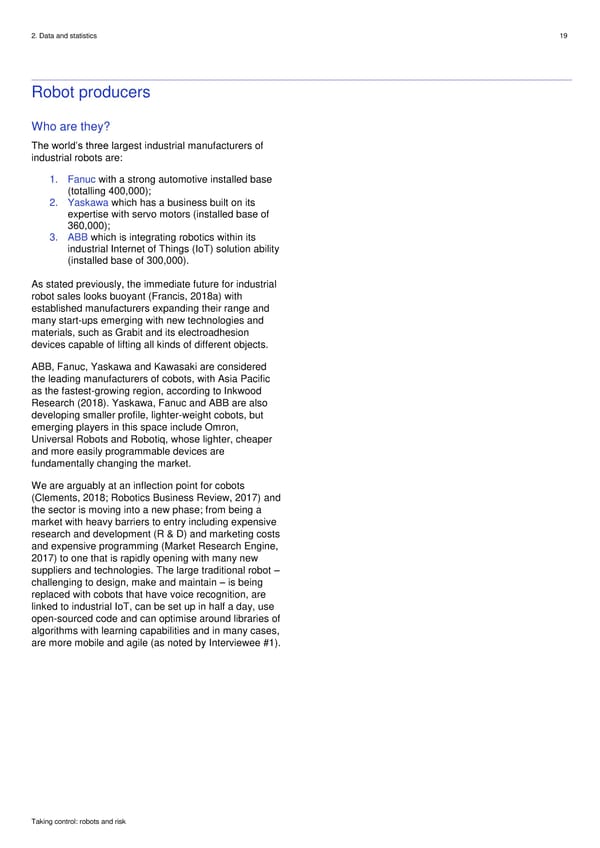2. Data and statistics 19 Robot producers Who are they? The world’s three largest industrial manufacturers of industrial robots are: 1. Fanuc with a strong automotive installed base (totalling 400,000); 2. Yaskawa which has a business built on its expertise with servo motors (installed base of 360,000); 3. ABB which is integrating robotics within its industrial Internet of Things (IoT) solution ability (installed base of 300,000). As stated previously, the immediate future for industrial robot sales looks buoyant (Francis, 2018a) with established manufacturers expanding their range and many start-ups emerging with new technologies and materials, such as Grabit and its electroadhesion devices capable of lifting all kinds of different objects. ABB, Fanuc, Yaskawa and Kawasaki are considered the leading manufacturers of cobots, with Asia Pacific as the fastest-growing region, according to Inkwood Research (2018). Yaskawa, Fanuc and ABB are also developing smaller profile, lighter-weight cobots, but emerging players in this space include Omron, Universal Robots and Robotiq, whose lighter, cheaper and more easily programmable devices are fundamentally changing the market. We are arguably at an inflection point for cobots (Clements, 2018; Robotics Business Review, 2017) and the sector is moving into a new phase; from being a market with heavy barriers to entry including expensive research and development (R & D) and marketing costs and expensive programming (Market Research Engine, 2017) to one that is rapidly opening with many new suppliers and technologies. The large traditional robot – challenging to design, make and maintain – is being replaced with cobots that have voice recognition, are linked to industrial IoT, can be set up in half a day, use open-sourced code and can optimise around libraries of algorithms with learning capabilities and in many cases, are more mobile and agile (as noted by Interviewee #1). Taking control: robots and risk
 Robots & Risk Page 18 Page 20
Robots & Risk Page 18 Page 20